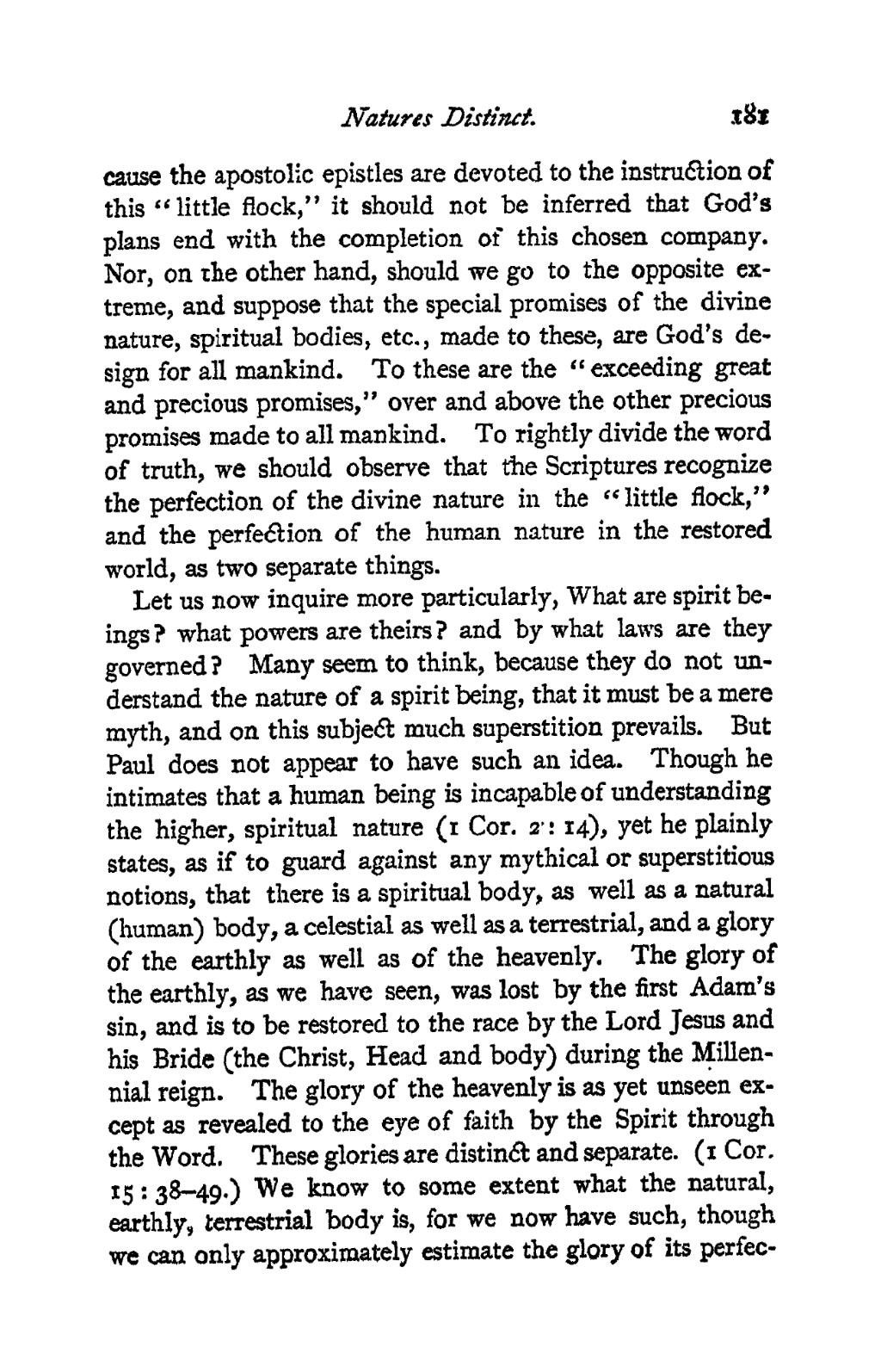Natures Distinct *8s
cause the apostolic epistles are devoted to the instru&ion of this " little flock," it should not be inferred that God's plans end with the completion of this chosen company. Nor, on the other hand, should we go to the opposite ex- treme, and suppose that the special promises of the divine nature, spiritual bodies, etc., made to these, are God's de- sign for all mankind. To these are the " exceeding great and precious promises," over and above the other precious promises made to all mankind. To rightly divide the word of truth, we should observe that the Scriptures recognize the perfection of the divine nature in the "little flock," and the perfection of the human nature in the restored world, as two separate things.
Let us now inquire more particularly, What are spirit be- ings? what powers are theirs? and by what laws are they governed? Many seem to think, because they do not un- derstand the nature of a spirit being, that it must be a mere myth, and on this subje& much superstition prevails. But Paul does not appear to have such an idea. Though he intimates that a human being is incapable of understanding the higher, spiritual nature (r Cor. 2-1 14), yet he plainly states, as if to guard against any mythical or superstitious notions, that there is a spiritual body* as well as a natural (human) body, a celestial as well as a terrestrial, and a glory of the earthly as well as of the heavenly. The glory of the earthly, as we have seen, was lost by the first Adam's sin, and is to be restored to the race by the Lord Jesus and his Bride (the Christ, Head and body) during the Millen- nial reign. The glory of the heavenly is as yet unseen ex- cept as revealed to the eye of faith by the Spirit through the Word. These glories are distind and separate, (i Cor, I S : 38*490 ^ e k now * some extent what the natural, earthly, terrestrial body is, for we now have such, though we can only approximately estimate the glory of its perfec-
�� �
